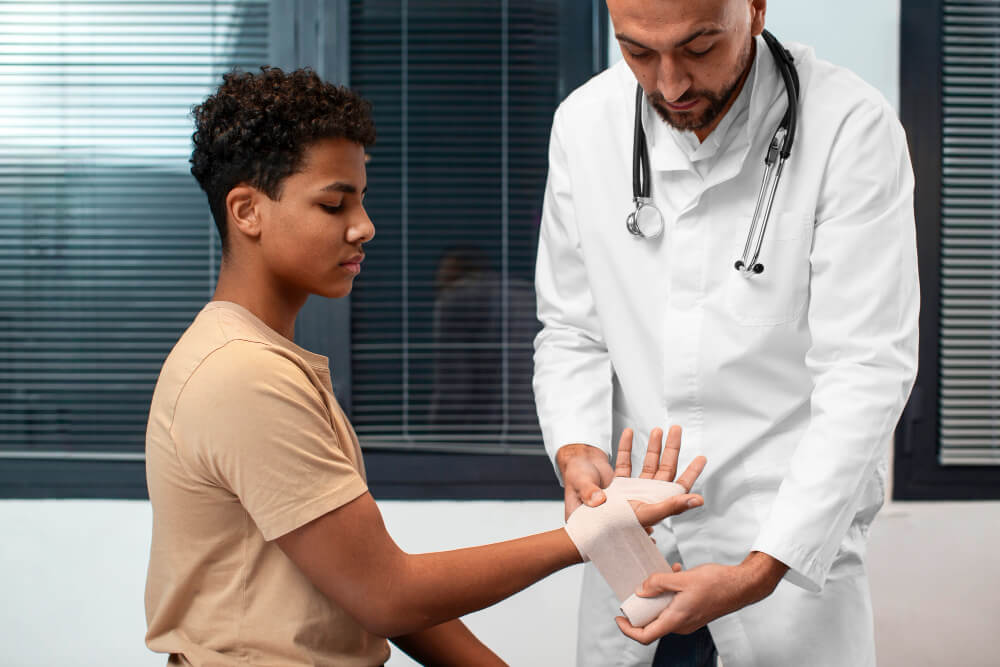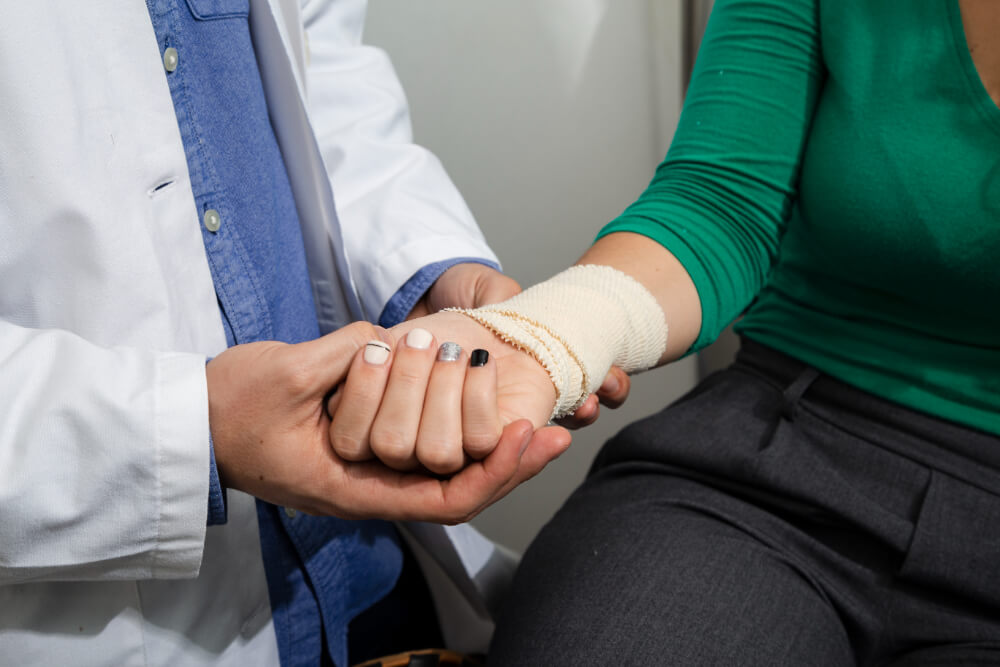Your First Line of Defense: Your Primary Care Physician for Minor Injuries
Minor injuries are a common part of everyday life. Whether it’s a scraped knee, a sprained ankle, or a minor burn, these seemingly insignificant incidents can cause discomfort and disrupt daily routines. While many minor injuries can be treated at home, seeking guidance from your primary care physician (PCP) can ensure proper care, minimize the risk of complications, and promote optimal healing.
What Are Minor Injuries?
Understanding Minor Injuries
Minor injuries refer to non-life-threatening conditions that require medical attention but do not necessitate a visit to the emergency room. Examples of such injuries include:
- Cuts and scrapes
- Bruises
- Minor burns
- Sprains and strains
- Minor fractures
- Insect bites and stings
Common Causes of Minor Injuries
Minor injuries can occur due to various reasons, such as:
- Accidental falls
- Sports activities
- Household accidents
- Workplace mishaps
- Outdoor recreational activities
Why Choose a Primary Care Physician for Minor Injuries?
Accessibility and Convenience
Primary care physicians are often more accessible than specialists or emergency departments. Many PCPs offer same-day or next-day appointments, ensuring timely care for minor injuries.
Comprehensive Medical History
Unlike urgent care clinics, primary care physicians have access to a patient’s comprehensive medical history. This familiarity allows them to provide tailored treatments and consider any pre-existing conditions or medications that might affect recovery.
Cost-Effectiveness
Visiting a PCP for minor injuries is generally more cost-effective than seeking care at an emergency room. PCPs also help in avoiding unnecessary diagnostic tests or procedures that may inflate medical bills.
Long-Term Relationship
The continuity of care provided by a primary care physician fosters trust and understanding. Patients feel more comfortable discussing their concerns, which can lead to better outcomes.
Types of Minor Injuries Treated by Primary Care Physicians
Cuts and Scrapes
Primary care physicians can clean, disinfect, and suture minor cuts. They also provide tetanus shots if required.
Sprains and Strains
For muscle or ligament injuries, PCPs offer treatments such as compression, bracing, and physiotherapy recommendations.
Minor Burns
PCPs assess the severity of burns and provide appropriate dressings, pain management, and infection prevention measures.
Bruises
While bruises usually heal on their own, PCPs can evaluate and manage deeper tissue damage if suspected.
Minor Fractures
Primary care physicians often use X-rays to diagnose minor fractures. They provide splinting, immobilization, and referrals to specialists if necessary.
Insect Bites and Stings
PCPs manage allergic reactions, infections, or swelling caused by insect bites and stings, often prescribing antihistamines or topical treatments.
The Role of Primary Care Physicians in Preventing Minor Injuries

Patient Education
Primary care physicians educate patients on safety measures to prevent injuries, such as proper lifting techniques, wearing protective gear, and practicing good hygiene.
Regular Check-Ups
During routine check-ups, PCPs can identify risk factors such as poor balance, muscle weakness, or inadequate vision that may lead to injuries.
Vaccinations
Vaccines like tetanus and rabies are essential for preventing complications from cuts, scrapes, or animal bites.
When to Seek Help from a Primary Care Physician?
Indicators for Consulting a PCP
You should consult a primary care physician if:
- The injury involves mild to moderate pain.
- Bleeding is controlled but needs professional cleaning or suturing.
- There is swelling, but the limb is functional.
- Symptoms do not improve after initial home care.
When to Consider Emergency Care Instead
While PCPs are excellent for minor injuries, certain situations require immediate emergency care, such as:
- Severe or uncontrollable bleeding
- Visible bone protrusions
- Suspected head or spinal injuries
- Chest pain or difficulty breathing
Benefits of Building a Relationship with a Primary Care Physician
Continuity of Care
A long-term relationship with a PCP ensures better health management, as the physician becomes familiar with your medical history and personal preferences.
Holistic Approach
Primary care physicians provide comprehensive care that goes beyond treating injuries. They focus on overall wellness, preventive care, and chronic disease management.
Peace of Mind
Knowing you have a trusted medical professional to turn to for minor injuries or other health concerns provides peace of mind.
Conclusion
Primary care physicians are invaluable allies in managing minor injuries efficiently and effectively. Their accessibility, cost-effectiveness, and personalized approach make them an ideal choice for non-life-threatening conditions. Building a relationship with a PCP not only helps in immediate injury management but also fosters long-term health and well-being.
Contact our Primary care physician for minor injuries treatment (214) 949-8918 Or visit us https://orthoxpress.co/locations/farmers-branch/

